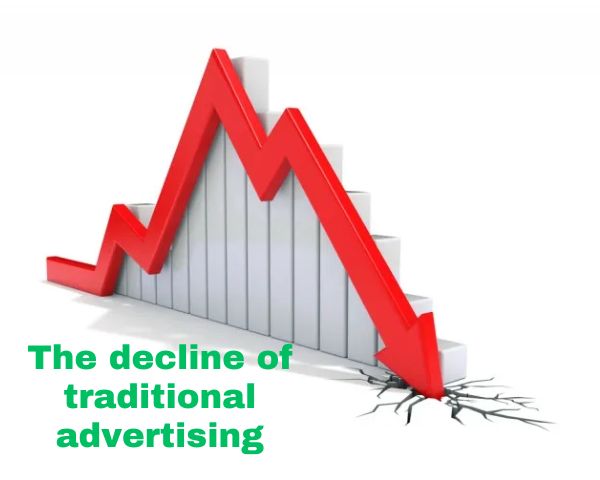Digital marketing is the use of digital technologies to promote or market products or services to consumers and businesses. It includes a wide range of activities, such as search engine optimization (SEO), social media marketing, content marketing, email marketing, and pay-per-click (PPC) advertising.
Digital marketing is constantly evolving, as new technologies and platforms emerge. In this article, we will take a look at some of the key trends that are shaping the future of digital marketing.
Key Trends that are shaping the future of Digital Marketing

Here are some of the key trends that are shaping the future of digital marketing:
1. Artificial intelligence (AI) and machine learning (ML)
AI and ML are already being used in a variety of ways in digital marketing, such as:
- Personalization: AI and ML can be used to personalize marketing messages and experiences for individual users. For example, Netflix uses AI to recommend movies and TV shows to its users based on their viewing history.
- Content creation: AI and ML can be used to create content, such as blog posts, social media posts, and email campaigns. For example, the marketing automation platform HubSpot uses AI to generate personalized email campaigns for its customers.
- Ad targeting: AI and ML can be used to target ads to specific audiences based on their interests, demographics, and online behavior. For example, Facebook uses AI to target ads to its users based on their likes and interests.
2. Virtual reality (VR) and augmented reality (AR)
VR and AR are immersive technologies that allow users to interact with digital content in a more realistic way. VR can be used to create virtual worlds that users can explore, while AR can be used to overlay digital content onto the real world.
VR and AR are still in their early stages of development, but they have the potential to revolutionize digital marketing. For example, brands could use VR to create virtual showrooms where customers can try on products before they buy them. Or, they could use AR to create interactive product demos and marketing campaigns.
3. Blockchain
Blockchain is a distributed ledger technology that underlies cryptocurrencies such as Bitcoin. Blockchain is also being used to develop new applications in a variety of industries, including digital marketing.
One of the key benefits of blockchain is that it can be used to create a more transparent and trustworthy advertising ecosystem. For example, blockchain could be used to track ad spending and ensure that ads are displayed to the right people.
4. The rise of influencers
Influencer marketing is a type of marketing where brands partner with individuals who have a large and engaged following on social media. Influencers can be used to promote products or services to their followers.
Influencer marketing is becoming increasingly popular, as brands recognize the power of social media influencers to reach their target audience. In fact, a recent study found that 68% of consumers trust the recommendations of social media influencers.
5. The rise of voice search
Voice search is a type of search where users speak their search queries instead of typing them. Voice search is becoming increasingly popular, as it is a more convenient and natural way to search for information.
Digital marketers need to adapt their strategies to the growing popularity of voice search. For example, they need to create content that is optimized for voice search and that answers the most common questions that people are asking about their products or services.
These are just a few of the key trends that are shaping the future of digital marketing. As these technologies continue to develop, we can expect to see even more innovative and effective ways to market products and services online.
The decline of traditional advertising

Traditional advertising, such as TV commercials and print ads, is becoming less and less effective. This is because consumers are spending more and more time online and are less likely to be exposed to traditional advertising. As a result, businesses are shifting their marketing budgets towards digital channels.
The importance of customer experience

In the future, businesses will need to focus on creating a positive customer experience across all channels. This means providing customers with a seamless experience when they interact with a business, whether it’s online, in-store, or over the phone. Businesses that can create a positive customer experience will be more likely to retain customers and attract new ones.
Conclusion
The future of digital marketing is bright. As new technologies and platforms emerge, digital marketers will have even more powerful tools at their disposal to reach and engage their target audiences. By staying ahead of the curve and embracing new technologies, digital marketers can ensure that their businesses are well-positioned for success in the years to come.
FAQs
Is digital marketing only about social media?
No, digital marketing encompasses various channels, including search engines, email, content marketing, and emerging technologies.
How important is SEO in digital marketing?
SEO is crucial for online visibility and ranking on search engines, ensuring that your content reaches the right audience.
What skills are essential for a digital marketer in the future?
Future digital marketers need skills in data analysis, AI, and continuous learning to adapt to the evolving landscape.
How can brands balance personalization and privacy in marketing?
Striking a balance involves transparent communication, obtaining consent, and ensuring that personalized efforts respect user privacy.
What role do influencers play in the future of digital marketing?
Influencers play a significant role by providing authentic endorsements and expanding a brand’s reach to a wider audience.




